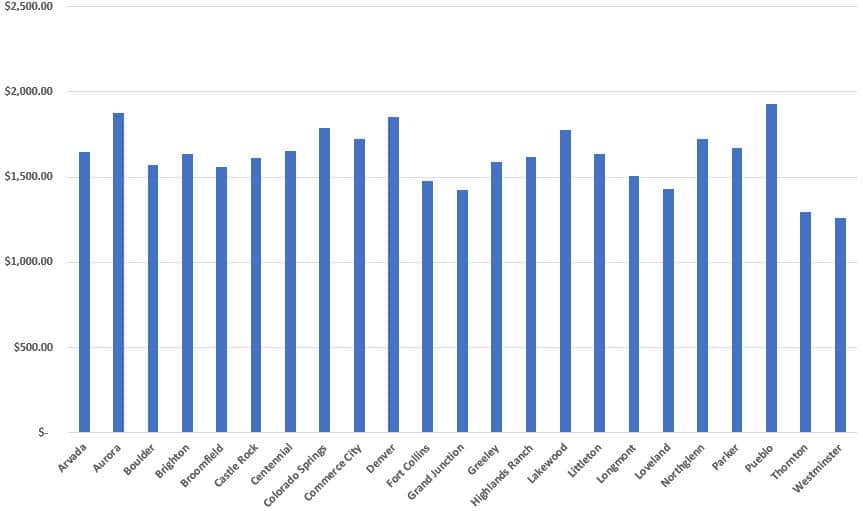Having auto insurance in Fort Collins protects the policyholder against losses involving automobiles. Different amounts of coverage can be purchased depending on the requirements of the person purchasing the insurance. Auto insurance rates are determined by a variety of factors which often differ from insurance company to insurance company. There are basically seven different types of coverage available. Some of these are required by law, while others are optional. They are:
- Bodily injury liability: This is for injuries the policyholder causes to someone else. The part of an auto insurance policy that pays for injuries you may cause another driver or pedestrian. It includes medical expenses and loss of wages.
- Medical payments: This is for treatment of injuries to the driver and passengers of the policyholder’s car. This part of an auto insurance policy pays for medical expenses and lost wages to you and any passengers in your vehicle after an accident. It is also known as personal injury protection (PIP).
- Property damage liability: This is for damage the policyholder causes to someone else’s property. The part of an auto insurance policy that pays for damages you may cause to another’s car or property.
- Collision: This is for damage to the policyholder’s car from a collision. The part of an auto insurance policy that pays to get your car repaired after a collision with another vehicle or an object, such as a fire hydrant or utility pole. It is collision insurance that will get your insurance company to seek out another driver’s insurance company to pay for repairs if they were at fault. A deductible amount will apply.
- Comprehensive: This is for damage to the policyholder’s car not involving a collision with another car (including damage from fire, explosions, earthquakes, floods, riots, and theft). This part of an auto insurance policy covers damages to your car caused by something other than a crash: a vandal breaks in, a tree falls on it or floodwaters engulf it. A deductible amount will apply.
- Uninsured motorists coverage: This is for costs resulting from an accident involving a hit-and-run driver or a driver who does not have insurance. This part of an auto insurance policy covers injuries to you caused by a driver without enough insurance to pay for your medical expenses. Some states include damages to your car in this coverage.
- Underinsured motorists coverage: This is for costs resulting from an accident involving a driver who does not have enough insurance. This part of an auto insurance policy covers injuries to you caused by a driver without insurance. Most states require drivers to carry uninsured motorist coverage. Some states include damages to your car in this coverage.
Other useful auto insurance terms:
- Auto insurance score: Like a credit score, this score is based on information found in a consumer’s credit file. Insurance companies consider auto insurance scores when pricing policies. Having black marks on your credit report could really bump up your auto insurance costs.
- Binder: A temporary insurance contract that provides proof of coverage until a permanent policy can be issued.
- Declarations page: The front page of an auto insurance policy listing the name of your insurance company, your policy number, your coverage, the cost of the coverage and your deductibles. This page also lists the vehicles insured on the policy as well as vehicle identification numbers (VIN).
- Liability insurance: This part of an auto insurance policy covers the injuries and damage you cause to other drivers and their vehicles when you are at fault in an accident. If you are taken to court, liability coverage will apply to your legal costs. Most states require drivers to carry liability coverage. The amount of coverage varies by state.
- Limits: The maximum amount of benefits your insurer will pay for a loss as designated in your insurance policy.
- Premium: The amount charged for an insurance policy. A premium is based on the type and amount of coverage you choose. Other factors affecting your insurance premium include your age, marital status, your driving and credit records, the type of car you drive and whether you live in an urban or rural area. Premiums vary by insurance company.
- Rental reimbursement: This part of a policy pays for the cost of a similar-sized rental car when your car is in a repair shop for covered damage.
- Surcharge: A charge added to your auto policy premium after a traffic violation or an accident in which you were at fault.


